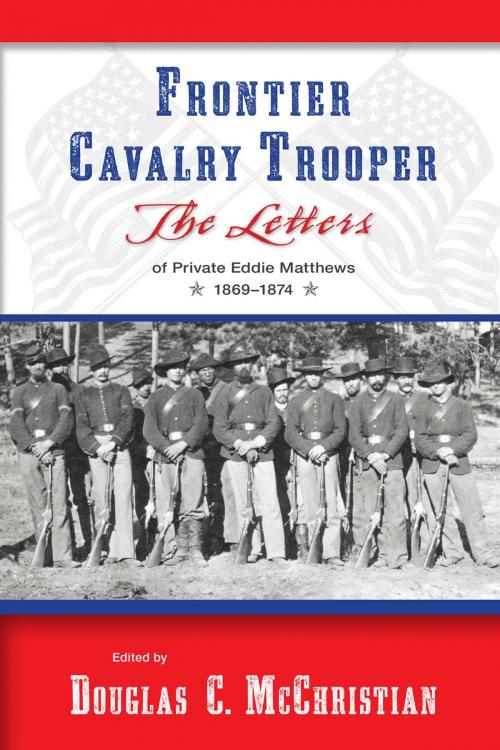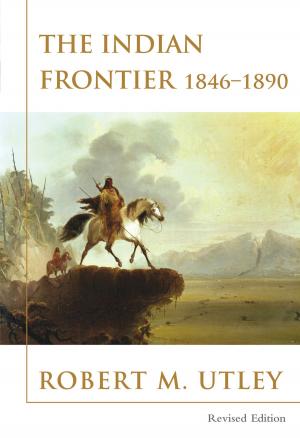Frontier Cavalry Trooper
The Letters of Private Eddie Matthews, 1869–1874
Nonfiction, History, Military, Americas, United States| Author: | ISBN: | 9780826352286 | |
| Publisher: | University of New Mexico Press | Publication: | April 30, 2013 |
| Imprint: | University of New Mexico Press | Language: | English |
| Author: | |
| ISBN: | 9780826352286 |
| Publisher: | University of New Mexico Press |
| Publication: | April 30, 2013 |
| Imprint: | University of New Mexico Press |
| Language: | English |
During his five years in the army, Private Edward L. Matthews wrote a series of exceptionally detailed and engaging letters to his family back home in Maryland describing his life in the Arizona and New Mexico Territories. Eddie Matthews’s letters, published here for the first time, provide an unparalleled chronicle of one soldier’s experiences in garrison and in the field in the post–Civil War Southwest.
Eddie’s letters record a vivid chronicle of day-to-day life in the frontier regulars. Included are operational details in his company, candid observations of people and places, intimate views of frontier society, and personal opinions that probably would have been forgotten or moderated had he recorded his experiences later in life. More subtle are his valuable references to the state of transportation and communication in the Southwest during the early 1870s. Matthews probably did not realize until later years that he was not only a witness to the nation’s rapid westward expansion, but was himself a tiny cog in the machinery that made it possible.
During his five years in the army, Private Edward L. Matthews wrote a series of exceptionally detailed and engaging letters to his family back home in Maryland describing his life in the Arizona and New Mexico Territories. Eddie Matthews’s letters, published here for the first time, provide an unparalleled chronicle of one soldier’s experiences in garrison and in the field in the post–Civil War Southwest.
Eddie’s letters record a vivid chronicle of day-to-day life in the frontier regulars. Included are operational details in his company, candid observations of people and places, intimate views of frontier society, and personal opinions that probably would have been forgotten or moderated had he recorded his experiences later in life. More subtle are his valuable references to the state of transportation and communication in the Southwest during the early 1870s. Matthews probably did not realize until later years that he was not only a witness to the nation’s rapid westward expansion, but was himself a tiny cog in the machinery that made it possible.















